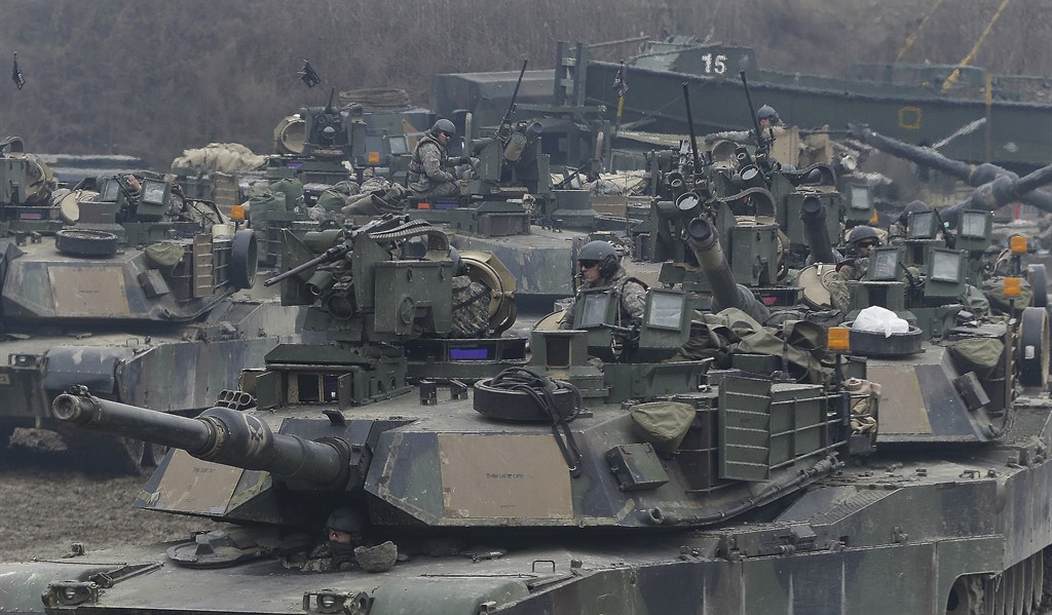In 2023, the U.S. supplied Ukraine with 31 highly advanced M1A1 Abrams tanks, the gold standard for armor in the world.
However, the battlefield has shifted dramatically since that decision. Russia has flooded the battlefield with reconnaissance drones as well as hunter-killer drones, making it extremely unsafe for any vehicle, armored or not, to maneuver across open ground.
On Thursday, Ukraine announced that it was pulling the remaining Abrams tanks from the front lines.
"When you think about the way the fight has evolved, massed armor in an environment where unmanned aerial systems are ubiquitous can be at risk," Joint Chiefs of Staff Vice Chairman Adm. Christopher Grady told the Associated Press in an interview this week. He also said that tanks are still important.
Are they? And to what extent are they still an important part of warfare?
"Now, there is a way to do it," he said. "We'll work with our Ukrainian partners, and other partners on the ground, to help them think through how they might use that, in that kind of changed environment now, where everything is seen immediately."
News of the sidelined tanks comes as the U.S. marks the two-year anniversary of the Ukraine Defense Contact Group, a coalition of about 50 countries that meets monthly to assess Ukraine's battlefield needs and identify where to find needed ammunition, weapons or maintenance to keep Ukraine's troops equipped.
Recent aid packages, including the $1 billion military assistance package signed by President Joe Biden on Wednesday, also reflect a wider reset for Ukrainian forces in the evolving fight.
That reset is what Kyiv desperately needs. Ukraine's troops are getting ground to dust by the sheer numbers of Russian troops and the seemingly unlimited amount of Russian armaments. Unless there's a way to flip the script and put Ukraine on the offensive, the war will, for all intents and purposes, be over by the end of the year.
That's what the Abrams tanks were supposed to do: give Ukraine a tactical advantage on the battlefield. But Russia's defensive works that Ukraine ran into during last summer's offensive proved ingeniously impenetrable. After several futile assaults, the Ukrainians gave up and began to dig their own defensive lines.
After announcing it would provide Ukraine the Abrams tanks in January 2023, the U.S. began training Ukrainians at Grafenwoehr Army base in Germany that spring on how to maintain and operate them. They also taught the Ukrainians how to use them in combined arms warfare — where the tanks operate as part of a system of advancing armored forces, coordinating movements with overhead offensive fires, infantry troops and air assets.
As the spring progressed and Ukraine's highly anticipated counteroffensive stalled, shifting from tank training in Germany to getting Abrams on the battlefield was seen as an imperative to breach fortified Russian lines. Ukrainian President Volodymyr Zelenskyy announced on his Telegram channel in September that the Abrams had arrived in Ukraine.
The Abrams was never going to be a war-winner for Ukraine. Kyiv would need far more than 31 tanks to make a difference on the battlefield. And the barely trained tank crews never got a chance to use the special characteristics of the Abrams to full effect.
Given that Kyiv won't be able to make the Abrams tanks invisible, that may be the last time we see the M1A1 in Ukraine.









Join the conversation as a VIP Member